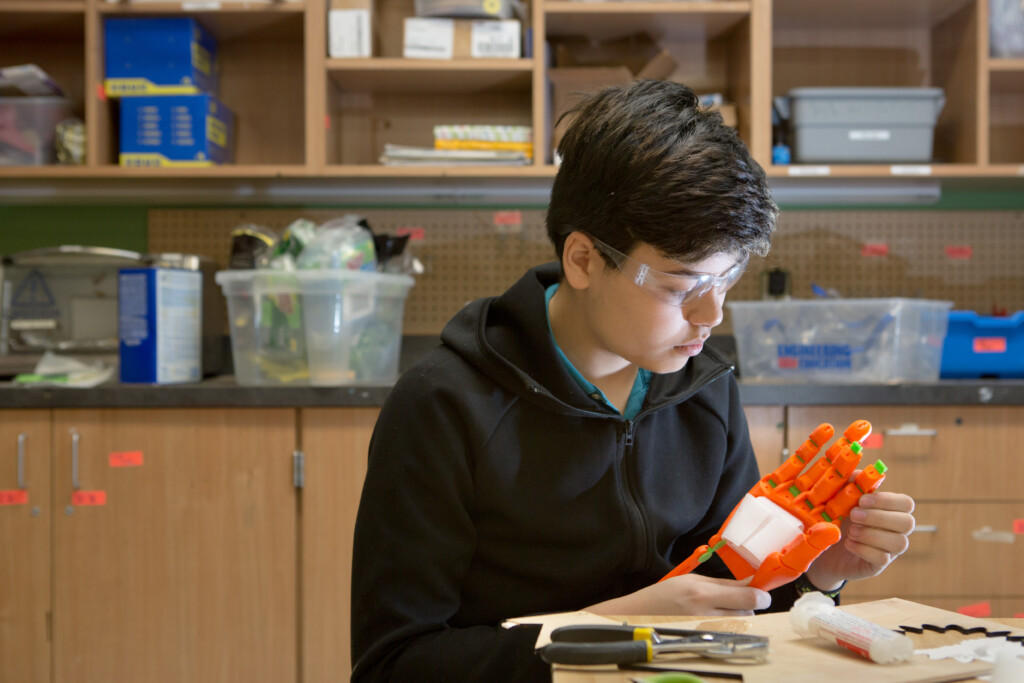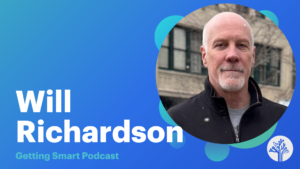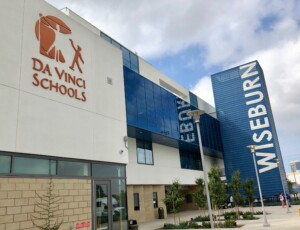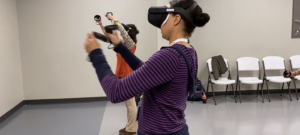Career Development Stage Left: RIASEC as Career Exploration
Key Points
-
The themes of RIASEC are not only an assessment tool, but they are a great communication tool.
-
Using RIASEC tools students are able to differentiate their interests using our approach and make quick connections between their themes and career interests they wanted to pursue.

By: Ed Hidalgo
I was invited to share the opening keynote for Three Rivers Educational Technology Conference (TRETC) 2024, a conference working to revolutionize learning and work by bringing together educators and technologists from around the Pittsburgh region.
As part of the career development in schools conference track, my keynote was to model a career conversation with four students from the South Fayette Township High School using the RIASEC.
Developed by John Holland, RIASEC themes help to identify potential worker- career fit. He also suggested that the theory can be used to explain vocational behavior and to suggest some practical ideas to help young, middle-aged, and older people select jobs, change jobs, and attain vocational satisfaction.
While in most cases RIASEC is used as an assessment, I like to think of it more like a language. These conversations are held such that students can explore themes and identify two or three top preferences rather than being held accountable to RIASEC tests.
The themes that we use to provide a common career language include:
- R: Realistic – “Doers”
- I: Investigative – “Thinkers”
- A: Artistic – “Creators”
- S: Social – “Helpers”
- E: Enterprising – “Persuaders”
- C: Conventional – “Organizers”
Describing both the “worker” and the “work environment,” the RIASEC can describe personal interests and preferences for individuals and the style of work that is needed for jobs and tasks. Thus, the RIASEC can help at all levels of career management and themes provide a vocabulary for how a person sees themselves now, where they might be growing their skills, exploring available options, and where they are headed.
Amplifying Student Voices
As much as I was processing my own role in this experience, I was more focused on caring for the four students who would be sharing personal aspects of their learning journey in front of strangers. When I greeted the students prior to going up on stage, we agreed to a few norms to ensure their comfort with the process and we established a working alliance that would lead to a successful experience. It was clear that the students were curious and passionate about this conversation.

As the audience watched, students were able to differentiate their RIASEC-themed interests and make quick connections between their preferred interest areas and careers. During the onstage conversation, one of the students stated, “I’m definitely going to talk to my parents about this.” Another student commented, “Having this conversation made my understanding so much more clear.”
I’ve done 25+ of these events since 2023 and as always I was struck by how the students:
- Were able to differentiate their interests using our approach and make quick connections between their themes and career interests they wanted to pursue.
- agreed that even though they were given definitions of each RIASEC theme prior to our conversation and had guessed each other’s themes, it wasn’t until our conversation that they fully understood each theme and were able to claim the themes that matched them best.
- Indicated they would speak to a parent or friend about what they’d learned.
- Agreed the tests they take in school to assess their career interests are not effective.
- Began to use RIASEC.
RIASEC Reflections
Carrie Akins, Career and Technical Education Principal with Calvert County Public Schools, reflected on a session with career advisors at Northern High and Plum Point Middle and shared: “Using the RIASEC gives students, educators, parents, and even our community’s employers a powerful common language so that we can all engage our students in meaningful discussions and planning about careers.” What was learned will help Akins build their program so students can effectively navigate their individual career journeys to find future employment that is a perfect fit for their skills and interests. Akins strives to pivot from “old status quo of transactional, ‘matchmaking’ activities” to “transformational, empowering experiences that support students right now, tomorrow, and forever down their paths.”
“We must recognize students need to be taught how to drive, not chauffeured through their journeys.”
Carrie Akins
Throughout the past 25 sessions, it’s become abundantly clear that students want to have conversations about their current and future possible selves. The language of RIASEC helps to facilitate this conversation and the dialogic approach opens a deep and wide world to explore. It’s such an honor to hear stories from students and how they plan to share their learnings with family and friends. What comes after learning RIASEC is the thing I worry about most. Who will come alongside these students to help them take their new understanding forward?
Ed Hidalgo is a Career Development Advisor and formerly was Chief Innovation and Engagement Officer for the Cajon Valley Union School District.







0 Comments
Leave a Comment
Your email address will not be published. All fields are required.